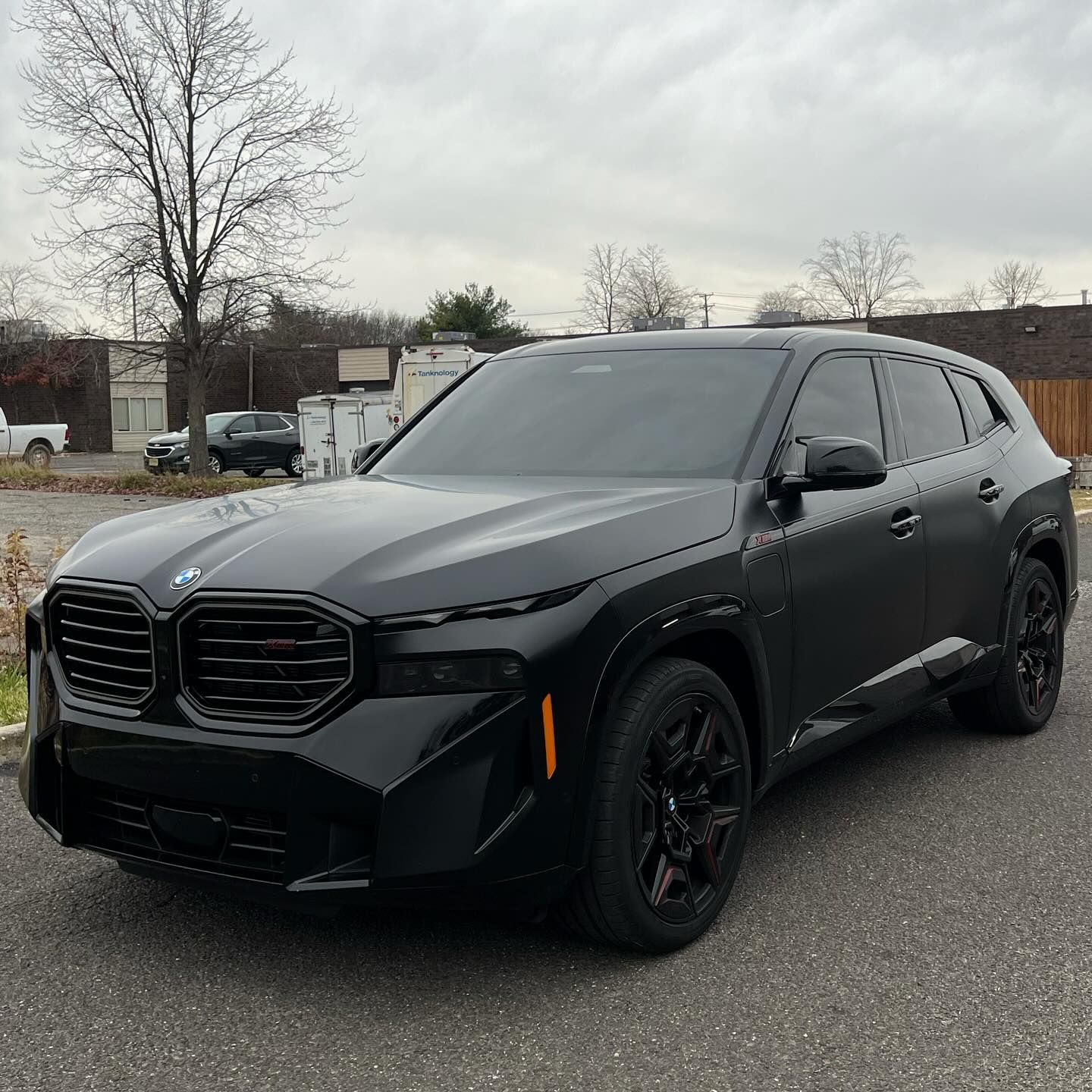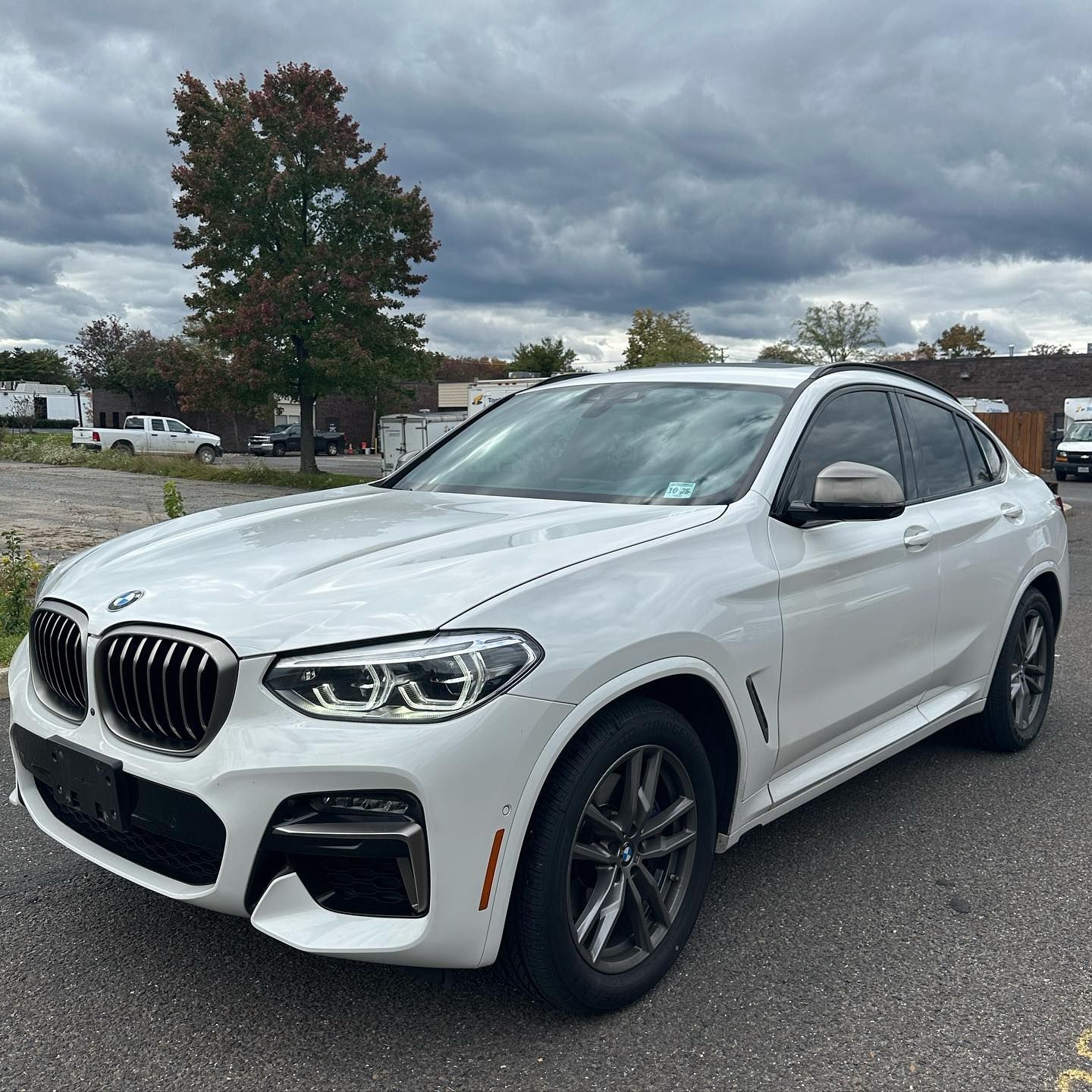New Jersey Window Tinting Laws
Car window tinting laws in New Jersey were enacted in 2003.
We have provided all the necessary information about your car’s window tint, including how dark or reflective the tint is allowed in your state.
There are also additional car window tinting rules and regulations in New Jersey so make sure you read all about it below.
Window tint darkness in New Jersey
The percent of visible light allowed through your car windows is called VLT: Visible Light Transmission.
The percentage of light allowed through your film and glass in New Jersey is very specific and different for sedan cars and SUV cars or vans.
Tint darkness for sedans:
- Windshield: No tint is allowed on the windshield.
- Front Side windows: No tint can be applied legally to this window.
- Back Side windows: Any darkness can be applied.
- Rear Window: Any darkness can be applied.
Tint darkness for SUV and vans:
- Windshield: No tint is allowed on the windshield.
- Front Side windows: No tint can be applied legally to this window.
- Back Side windows: Any darkness can be used.
- Rear Window: Any darkness can be used.
Window tint reflection in New Jersey
Window tint can reflect incoming light and reduce glare and heat.
New Jersey window tint law permits a certain window reflection when using a tint so make sure you pay attention to this as well.
Tint reflection for sedans:
- Front Side windows: No mirrored or metallic appearance.
- Back Side windows: No mirrored or metallic appearance.
Tint reflection for SUV and vans:
- Front Side windows: No mirrored or metallic appearance.
- Back Side windows: No mirrored or metallic appearance.
Other New Jersey window tint rules and regulations:
New Jersey does have several other important laws, rules and regulations pertaining to window tinting. They include the following:
- Side Mirrors: Dual side mirrors are required if back window is tinted.
- Restricted Colors: No colors of tint are explicitly banned by New Jersey law.
- Certificates: Film manufacturers don’t need to certify the film they sell in this state.
- Stickers: Stickers to identify legal tinting are not required.
- Medical Exceptions: New Jersey allows medical exemptions for special tint. For more details about the specific terms of the exemption, consult New Jersey law.
- Penalties: Maximum $1,000 fine for first offense, and $5,000 for second or subsequent offenses (NJ Statutes 39:3-75.3)
Keep in mind that New Jersey tinting laws and regulations may be interpreted differently in your county or place of residence.
We always recommend double-checking our information with your local DMV or law enforcement authorities.
Our information about window tint laws in New Jersey was last updated in 2024.
Tinting laws in New Jersey were enacted in 2003.
In case any of our info provided is not up to date or correct be sure to contact us so we can fix it. Thanks!
Trusted industry leader in providing accurate window tint laws. Share with confidence:
What is the darkest legal tint in New Jersey?
Curious about the darkest legal tint in New Jersey for your car's windows? This covers the basics to keep you informed and road-legal.
In New Jersey, the darkest legal tint for front side windows is 70% Visible Light Transmission (VLT). This means that the tint must allow at least 70% of light to pass through. The regulations for rear side windows and the rear window are the same; they also must have a minimum of 70% VLT. It's essential to adhere to these tint regulations to avoid potential fines or legal issues while driving in New Jersey. Please check with local authorities or the New Jersey Motor Vehicle Commission for any updates or changes to these regulations.
Legal Tint Limits in New Jersey
In New Jersey, the darkest legal tint must allow at least 70% of visible light to pass through the front windshield and front side windows. Rear side windows and the rear window can be darker, but it's wise to stay within the limits.
Benefits of Legal Tint
Legal window tint can reduce glare, keep your car cooler, and offer some privacy without breaking the law.
Consequences of Illegal Tint
Going beyond the legal limits can lead to fines, inspection issues, and reduced visibility, so it's best to stay compliant.
Conclusion
In New Jersey, adhering to the legal window tint limits ensures both your safety and compliance with the law. By staying within the regulations, you can enjoy the advantages of window tint while avoiding fines and potential road hazards. So, when considering window tint for your vehicle, remember to keep it legal and make the road a safer place for everyone.

BUSINESS HOURS
Monday - Friday: 9am to 5pm
Saturday: 9am to 3pm
All Rights Reserved | The Window Tinters
The content on this website, including images and videos, is owned by The i-Concepts and our licensors. Unauthorized use, distribution, or reproduction of any content from this website, including images and video is strictly prohibited.






